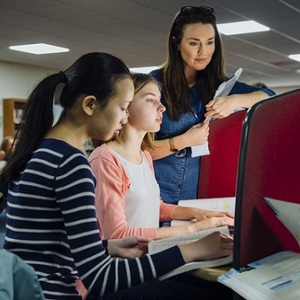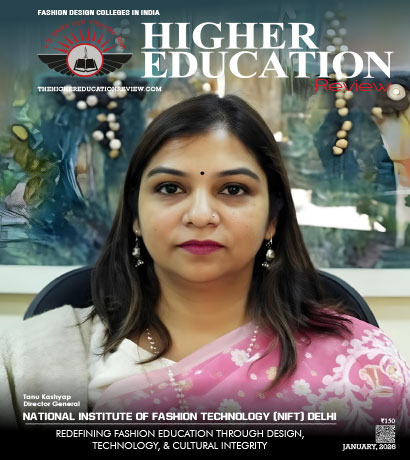The Impact of Experiential Learning in Higher Education
 Education has always been a cornerstone of human civilization, and numerous teaching approaches have emerged over time to efficiently transfer information. Experiential learning is one revolutionary strategy that is gaining traction in higher education. Unlike traditional didactic techniques, experiential learning is based on actual encounters that allow students to actively connect with the subject matter. This hands-on method has demonstrated enormous potential to transform the landscape of higher education by encouraging critical thinking, problem-solving abilities, and emotional intelligence.
Education has always been a cornerstone of human civilization, and numerous teaching approaches have emerged over time to efficiently transfer information. Experiential learning is one revolutionary strategy that is gaining traction in higher education. Unlike traditional didactic techniques, experiential learning is based on actual encounters that allow students to actively connect with the subject matter. This hands-on method has demonstrated enormous potential to transform the landscape of higher education by encouraging critical thinking, problem-solving abilities, and emotional intelligence.
Furthermore, experiential learning may aid in the development of critical soft skills such as communication, cooperation, and problem-solving, all of which are required for success in the workplace. For example, via problem-based learning, students learn how to collaborate to solve real-world challenges, gaining significant insights into the professional world. However, there is also the notion that too much experiential learning can be overwhelming for pupils, who may not be able to digest all of the information.
Experiential learning may also be costly since it frequently necessitates specialized equipment or facilities that not all schools can afford. Experiential learning happens when individuals actively participate in experiencing and processing an experience or sequence of events.
Bridging the Gap between Theory and Practice
One of the primary advantages of experiential learning in higher education is its ability to bridge the gap between theory and practice. Traditional classroom settings often focus on theoretical concepts without providing students with opportunities to apply their knowledge in real-life situations. Experiential learning, on the other hand, immerses students in practical scenarios, allowing them to see how theoretical principles manifest in the real world.
For instance, in disciplines such as engineering or architecture, students can participate in hands-on projects, where they design and construct prototypes. By doing so, they gain insights into the challenges and complexities that arise during the implementation of their theoretical knowledge. This exposure fosters a deeper understanding of the subject matter and cultivates problem-solving skills that can only be developed through direct experience.
Moreover, experiential learning encourages critical thinking, as students are compelled to analyze and evaluate the outcomes of their actions. This process not only reinforces their theoretical understanding but also empowers them to make informed decisions based on evidence and data.
“Experiential learning isn’t without its challenges, as something that works for some students might not work for others. So, it is learning for teachers as well where they have to mend their instruction ways as per students.” Says Dr Kavita Nagpal, VP of Academics – North Zone, Orchids The International School.
Fostering Professional Skills and Competencies
Experiential learning plays a pivotal role in nurturing a wide array of professional skills and competencies that are highly sought after in the job market. Unlike traditional teaching methods that may overlook skill development, experiential learning deliberately hones skills that are essential for career success.
Communication and Collaboration: In the professional world, effective communication and collaboration are indispensable. Experiential learning often involves team-based projects, simulating real workplace environments where students must communicate, share ideas, and work together to achieve common goals. Through such experiences, students learn to respect diverse perspectives, resolve conflicts, and foster synergy among team members.
Adaptability and Resilience: Experiential learning frequently presents unexpected challenges and uncertainties. Students are encouraged to adapt to changing circumstances and learn from failures or setbacks, fostering resilience and a growth mindset. These qualities are invaluable as graduates navigate a rapidly evolving job market.
Leadership and Decision-making: Leadership skills are nurtured through experiential learning, as students often take on leadership roles within project teams. This opportunity allows them to enhance their decision-making abilities, delegate tasks effectively, and inspire their peers to achieve common objectives.
Problem-solving and Innovation: Experiential learning requires students to tackle real problems, encouraging them to think creatively and innovate. By testing their ideas in practical settings, students become adept at identifying solutions that work in the real world.
Enhancing Student Engagement and Retention
Experiential learning significantly enhances student engagement and retention, leading to a more enriching educational experience. Traditional lecture-style classes can sometimes be passive, leading to disinterest and decreased retention of information. Experiential learning, on the other hand, actively involves students in the learning process, making it more enjoyable and memorable.
Active engagement captures students' attention and encourages them to become proactive participants in their education. They become invested in the learning process, leading to increased motivation and a sense of ownership over their academic journey. As a result, students are more likely to retain information and apply their learning in future academic pursuits and professional endeavours.
Experiential learning also promotes a sense of purpose and relevance in education. Students can connect their learning experiences to real-life situations, seeing the direct impact of their knowledge and skills on their environment. This connection fosters a deeper appreciation for education and inspires a lifelong passion for learning.
Experiential learning has revolutionized higher education, providing a transformative learning experience that bridges the gap between theory and practice. By fostering professional skills and competencies, it equips students with the tools they need to excel in their careers and adapt to a constantly evolving job market. Moreover, through increased engagement and retention, experiential learning enhances the overall quality of education and prepares students to become lifelong learners.
As educational institutions continue to embrace experiential learning, they pave the way for a more empowered and capable generation of graduates ready to take on the challenges of the future. By prioritizing experiential learning in higher education, we equip students with the skills and mindset needed to make meaningful contributions to society and thrive in their chosen fields.

